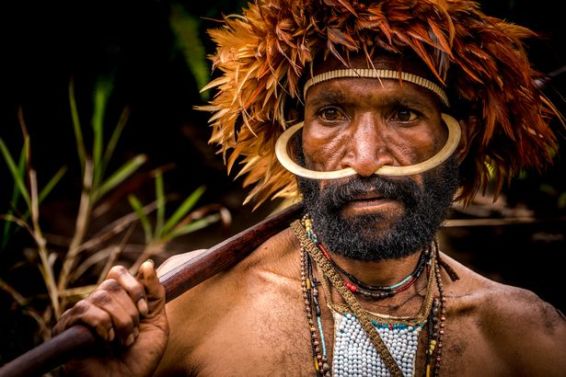The Dani people, who live deep in the highlands of Western New Guinea, Indonesia, are known for their unique customs
https://goo.gl/vhtQXE
Image Credit : mirror.co.uk
Click On The URL Or PICTURE for the complete News, Videos and more photos.
The Dani people, also spelled Ndani, and sometimes conflated with the Lani group to the west, are a people from the central highlands of western New Guinea (the Indonesian province of Papua).
They are one of the most populous tribes in the highlands, and are found spread out through the highlands. The Dani are one of the most well-known ethnic groups in Papua, due to the relatively numerous tourists who visit the Baliem Valley area where they predominate. “Ndani” is the name given to the Baliem Valley people by the Moni people, and, while they don’t call themselves Dani, they have been known as such since the 1926 Smithsonian Institution-Dutch Colonial Government expedition to New Guinea under Matthew Stirling who visited the Moni.
Culture
Sweet potatoes are important in their local culture, being the most important tool used in bartering, especially in dowries. Likewise pigs feasts are extremely important to celebrate events communally; the success of a feast, and that of a village big man (man of influence) or organiser, is often gauged by the number of pigs slaughtered.
The Dani people use an earth oven method of cooking pig and their staple crops such as sweet potato, banana, and cassava. They heat some stones in a fire until they are extremely hot, then wrap cuts of meat and pieces of sweet potato or banana inside banana leaves. The food package is then lowered into a pit which has been lined with some of the hot stones described above, the remaining hot stones are then placed on top, and the pit is covered in grass and a cover to keep steam in. After a couple of hours the pit is opened and the food removed and eaten. Pigs are too valuable to be served regularly, and are reserved for special occasions only.
Ritual small-scale warfare between rival villages is integral to traditional Dani culture, with much time spent preparing weapons and treating resulting injuries. Typically the emphasis in battle is to insult the enemy and wound or kill token victims, as opposed to capturing territory or property or vanquishing the enemy village.
Changes in the Dani way of life over the past century are tied to the encroachment of modernity and globalization, despite tourist brochures describing trekking in the highlands with people from the ‘stone age’. Observers have noted that pro-independence and anti-Indonesian sentiment tends to run higher in highland areas than for other areas of Papua. There are cases of abuses where Dani and other Papuans have been shot and/or imprisoned trying to raise the flag of West Papua, the Morning Star.


